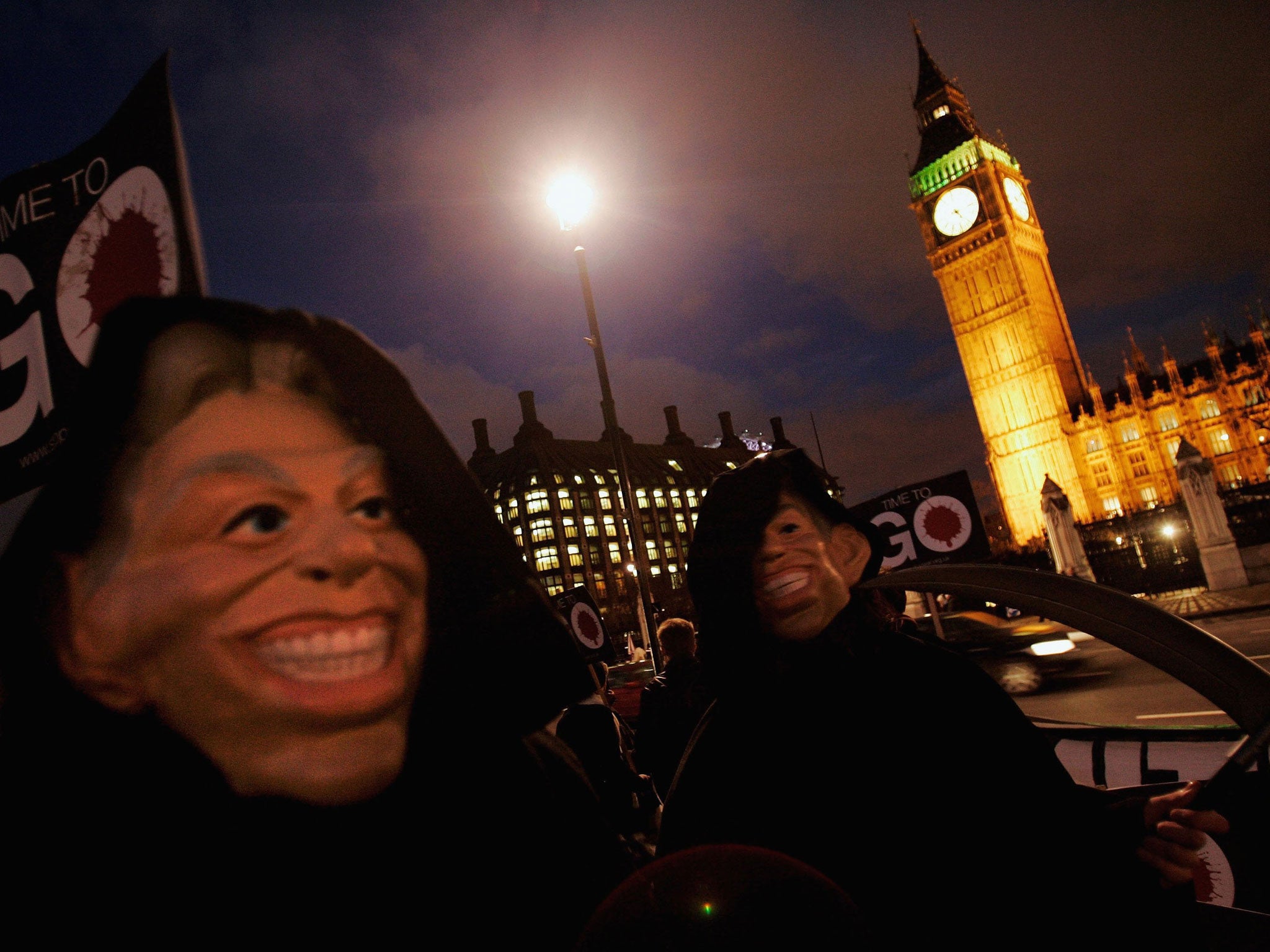Was the war in Iraq worth it? Even after ten years, it's still too early to tell
There's no doubt the legacy of the war in the UK has been dire, but we must look beyond this insular point of view


Your support helps us to tell the story
From reproductive rights to climate change to Big Tech, The Independent is on the ground when the story is developing. Whether it's investigating the financials of Elon Musk's pro-Trump PAC or producing our latest documentary, 'The A Word', which shines a light on the American women fighting for reproductive rights, we know how important it is to parse out the facts from the messaging.
At such a critical moment in US history, we need reporters on the ground. Your donation allows us to keep sending journalists to speak to both sides of the story.
The Independent is trusted by Americans across the entire political spectrum. And unlike many other quality news outlets, we choose not to lock Americans out of our reporting and analysis with paywalls. We believe quality journalism should be available to everyone, paid for by those who can afford it.
Your support makes all the difference.Almost 25 years ago, I cut a lonely figure in the parliamentary press gallery listening to a desultory late night debate on Iraq. Some backbench MPs had been making trouble over horrific television images of Kurds who had been gassed by Saddam Hussein’s regime. The government and Labour’s shadow cabinet were united in deploring this murderous activity, and in resolving to do nothing about it beyond sending stiff messages to Baghdad.
Jeremy Corbyn, a lifelong trouble maker, did once raise the possibility that they might threaten to break off diplomatic relations if Iraq persisted, only to be told by a foreign minister, David Mellor, that it would be “self-defeating.” Of the three adjoining regimes in Iran, Iraq and Syria, Saddam Hussein’s was seen in the West as the least worst.
I never could take seriously the outbreak of concern for the victims of Iraq’s Ba’athist regime that spread through Britain’s political establishment after the gassing of the Kurds. If Saddam Hussein had not been so crass as to invade Kuwait in 1990, he could have carried for many more years torturing and killing with the benign connivance of his western sponsors.
But that does not answer the question ‘Was it worth it?’ posed last week, in a debate hosted by Goldsmith College to mark the upcoming 10th anniversary of the Iraq War.
There are two ways of approaching such a question: either by trying to assess the war’s impact in the Middle East, or by focusing parochially on UK domestic politics.
From the insular point of view, the legacy of the war has been dire. It has done irreparable damage to Tony Blair’s reputation, and has made a large contribution to the pervasive sense that no one can trust anything a British politician says. I do not believe, by the way, that Tony Blair consciously lied about his reasons for sending troops into Iraq. He knew that Saddam Hussein’s regime had used weapons of mass destruction, and had been caught lying about whether they had disposed of their weapons. He needed to believe that the weapons were still there, to give him a case for saying that the UK was going in self-defence. “Why are the anti-war crowd left making such a big deal out of the weapons of mass destruction?” I was asked by a bemused Downing Street adviser, soon after the capture of Baghdad. “When the weapons turn up, they won’t have an argument.” People in that line of work are good at sincerely believing what they need to believe.
But what stuck in the public mind was that Tony Blair said that the troops were going into Iraq because that country had weapons of mass destruction, which was untrue. It was a colossal mistake that has left a lasting impression that Blair’s word could not be trusted.
As for its eventual impact on Middle East, ten years is surely too short a time to tell. The nearest post-war equivalent was the CIA coup in Iran in 1953, which toppled an elected government and reinstated the Shah. For 25 years afterwards, the CIA could congratulate itself on having protected the west’s oil supplies. Now, the adventure looks like an unmitigated stupidity.
Iraq has endured 10 years of intermittent violence which may have cost over 120,000 lives. Against that, there is the unknowable total of people who would have been killed if Saddam and his crew had remained in control. We can assume that the Arab Spring would have spread into Iraq, probably setting off a civil war like Syria’s. Perhaps there would now be two murderous governments fighting for survival, each wishing destruction on the other, or possibly Saddam’s gang would have been overthrown in short order. We shall never know.
As to whether Iraq’s current political system, created under foreign occupation, will last and prove stable and bring long term benefits – that something we should know for definite by 2028.
Join our commenting forum
Join thought-provoking conversations, follow other Independent readers and see their replies
Comments